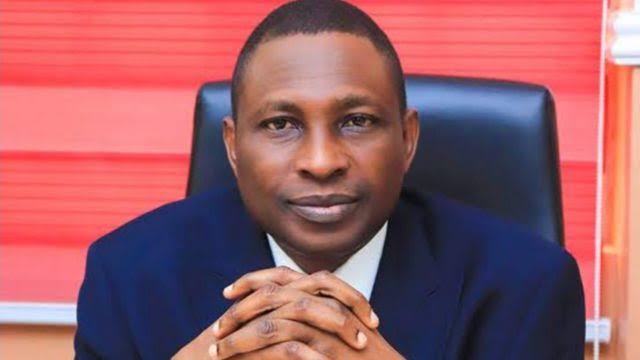The Economic and Financial Crimes Commission (EFCC) has denied media reports that its Chairman, Ola Olukoyede allegedly referred to seven out of every 10 Nigerian students as criminals.
The spokesperson for the anti-graft agency, Dele Oyewale made the development known in a statement on Thursday.
He revealed that the EFCC Chairman at a recent meeting with members of Civil Society Organisations, had only called for a wider media enlightenment of youths as a counter-measure against the menace of internet fraud.
He added that Olukoyede noted that reports and intelligence available to him indicated that, unless the trajectory of youth involvement in internet fraud is addressed and reversed, the future of their leadership of the country may be threatened, and if it continues in the next 10 years, seven out of 10 Nigerian youths may be getting involved in cyber crimes.
Oyewale said, “The attention of the Economic and Financial Crimes has been drawn to some needless misrepresentation of the concerns of the Executive Chairman of the EFCC, Mr Ola Olukoyede to the rising incidences of internet-related crimes involving youths across the country.
“At a recent meeting with some representatives of Civil Society Organisations that paid him a courtesy visit, he called for wider media enlightenment of youths as a counter-measure against the menace of internet fraud. He did say that reports and intelligence available to him indicated that, unless this trajectory of youth involvement in internet fraud is addressed and reversed, the future of their leadership of our great nation may be threatened and if it continues in the next 10 years, seven out of 10 of our youths may be getting involved in cyber crimes.
“At no time did he say that ‘seven out of 10 Nigerian students are criminals’. His concerns still bother breaking the jinx of the mass indulgence of youths in cyber crimes.
“The EFCC wishes to assure the public that Olukoyede is doubly committed to the progress of Nigerian youths and this underscores his calls for collaborative interventions in offering them more productive and sustainable.”

